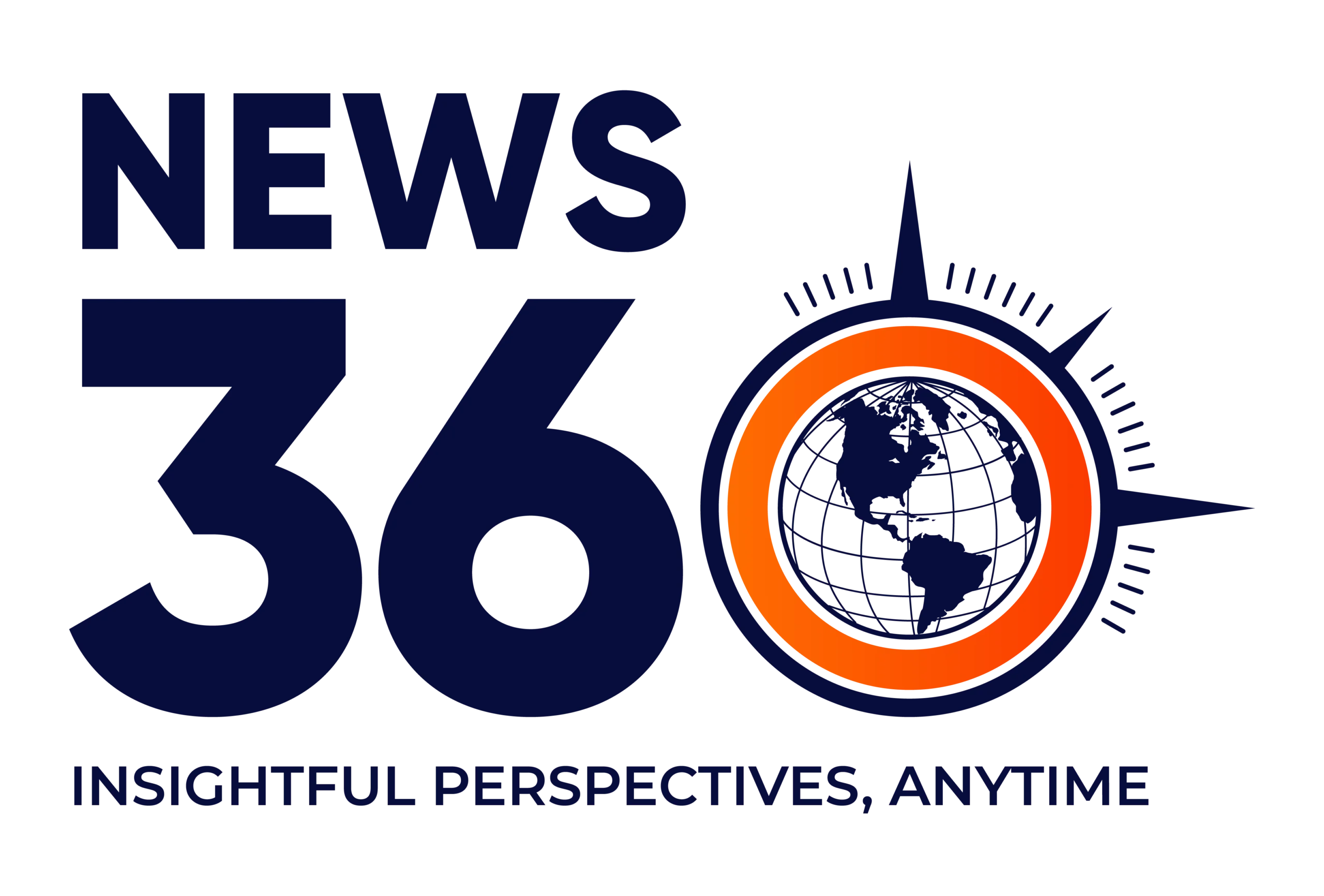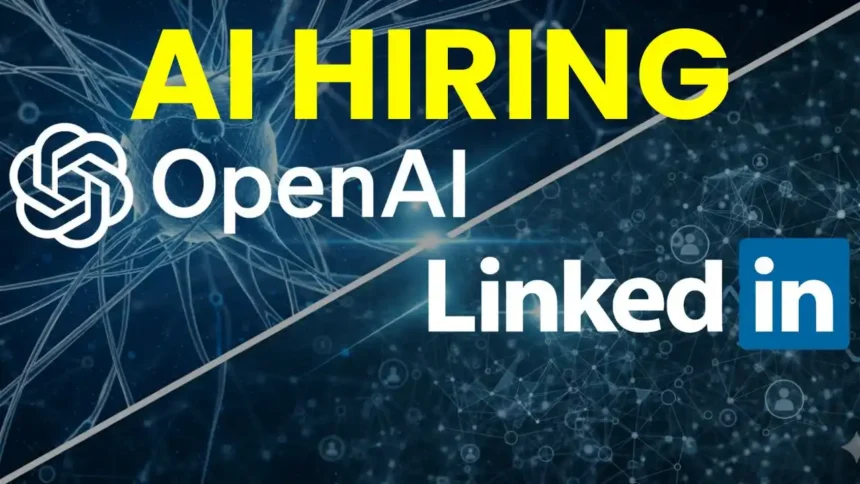OpenAI’s New AI Hiring Platform: Reshaping How Companies Find Talent
OpenAI, the minds behind ChatGPT, just stepped into the hiring world. They launched a new AI-powered platform to help companies find workers. This big move could truly shake up how we think about recruitment. It might even challenge big players like LinkedIn.
The platform uses smart AI to make hiring easier. It aims to improve every step, from finding people to setting up interviews and checking skills. This raises important questions. How will humans fit into hiring in the future? Can AI really fix old problems in finding staff?
This article will look at what OpenAI’s new hiring tool means. We will check its good points, its tough parts, and how it might change hiring for bosses and job seekers alike.
Understanding OpenAI’s New Hiring Platform
What is the OpenAI Hiring Platform?
This new platform is all about making recruitment smarter. It uses AI to handle many tasks that used to take up a lot of time. Think of it as a super-smart assistant for hiring. It can automatically look through resumes, helping companies find the best matches fast.
The platform also helps schedule interviews and can even do early checks on candidates. It aims to make the whole process smoother and quicker. Businesses hope to cut down on manual work and focus on top talent.
The AI Technology Behind the Platform
OpenAI’s platform runs on powerful AI. It uses advanced language models, much like those in ChatGPT. These models are great at understanding human language. They can read job descriptions and candidate resumes.
This smart tech helps the platform spot important skills and experience. It can also match what a job needs with what a person offers. This makes it easier to find fitting candidates without a human reading every single application. The AI learns from data, making it better over time at finding good people.
OpenAI’s Strategic Move into Recruitment
Why did OpenAI jump into hiring? They likely see a big chance to use their AI tech to solve real problems. Hiring is often slow and costly. OpenAI wants to make it much more effective. Their goal is to make AI a core part of how companies grow their teams.
This step shows OpenAI wants to do more than just chatbots. They aim to put AI into key business areas. It also helps them show off what their AI can really do. They want to show that AI can bring real value to everyday business tasks.
Revolutionizing the Recruitment Process
Streamlining Candidate Sourcing and Screening
Imagine not having to sort through hundreds of resumes. OpenAI’s AI can do just that. It quickly finds and reviews candidates. This speeds up the start of the hiring process a lot. Companies can find suitable people much faster than before.
This means hiring managers get more time to focus on final decisions. AI can also help look beyond standard places for talent. It might even help reduce unfairness by focusing on skills and experience, not just names or schools. We know manual screening can take up to 23 hours for one role; AI cuts this down to minutes.
Enhancing Candidate Experience
Applying for jobs can feel like sending applications into a black hole. OpenAI’s platform can make it better for job seekers. It can give faster updates and more personal interactions. Candidates might get quick answers to common questions through AI chatbots.
This quick feedback helps people feel valued. It makes the hiring process less frustrating. A good experience can also make a company look better to future employees. It helps them feel like the company cares.
Automating Interview Processes
The platform can also help with interviews. It can set up meeting times easily, avoiding back-and-forth emails. Sometimes, AI might even help create interview questions. It could even look at answers to find key points.
This means less time spent on planning. Recruiters can then use their time for deeper talks. The AI can help make sure everyone gets a fair chance to show their skills. It can make the process more consistent for all applicants.
Benefits and Potential Impact for Employers
Increased Efficiency and Cost Savings
Businesses adopting OpenAI’s hiring platform can expect big gains. The AI can find and screen candidates much faster. This reduces the time it takes to fill an open job. Fewer hours spent on manual tasks means less money spent on hiring.
For example, if it takes 40 days to hire someone, and AI cuts that to 20, the company saves a lot. This also means new employees start sooner, adding value to the company faster. Imagine trimming a company’s yearly recruitment budget by 30% just by using smarter tools.
Improved Quality of Hires
AI can look at more data than a human ever could. This helps it find candidates who are a better fit for the role and company culture. It can spot patterns in successful employees and apply that to new hires. This means better-matched people who stay longer.
When you hire someone who fits well, they are often more productive. They also tend to stick around, reducing the costs of having to rehire often. This helps build stronger, more stable teams.
Addressing Talent Shortages
Many companies struggle to find people with the right skills. AI can help here. It can search a much wider pool of candidates than traditional methods. It can also find hidden talent or people with skills that are not obvious from a quick glance.
This means companies can tap into more diverse groups of workers. They can find skilled people they might have missed before. This gives them a real edge when talent is hard to come by. It can open doors to many new workers.
Challenges and Ethical Considerations
Algorithmic Bias and Fairness
One big worry with AI in hiring is bias. AI learns from past data. If that data has old biases, the AI might repeat them. It could unfairly favor certain types of candidates or overlook others. This means some people might not get a fair shot.
For instance, if past hiring mainly picked men for tech roles, the AI might learn to prefer men. This makes it crucial to train AI on fair and balanced data. We need to watch out so AI does not make old problems worse.
Data Privacy and Security
The platform collects lots of personal info from job seekers. Things like resumes, work history, and even interview responses. Keeping this data safe is a huge deal. People worry about who sees their info and how it’s used.
Companies must guard this data well. They need to follow rules like GDPR. If data gets hacked, it could hurt many people. Trust in the system depends on strong security measures.
The Human Element in Hiring
Hiring is more than just matching skills. It’s about finding someone who fits a team, shares values, and brings new ideas. These are things often best judged by people. AI might miss the subtle signs of a good personality fit or true passion.
We need human judgment for empathy and understanding. A computer can’t truly understand how someone will add to team spirit. The best hiring often comes from a mix of smart tech and human wisdom.
Over-reliance on AI and Skill Obsolescence
What happens if recruiters rely too much on AI? They might stop using their own judgment. Skills like asking good questions or reading body language could fade. This could make recruiters less skilled over time.
It’s important for recruiters to stay sharp. They should use AI as a tool, not as a replacement for their own smarts. We need to make sure humans stay in charge of the big decisions.
The Future of Recruitment with AI
Predictions for the Recruitment Landscape
AI platforms like OpenAI’s will change hiring a lot. We will likely see fewer manual tasks in recruitment. Recruiters might spend more time building relationships and guiding new hires. Their jobs will shift from screening to strategic planning.
The industry will likely see more specialized AI tools too. These tools will handle different parts of the hiring process. The market will become more focused on tech that helps companies find workers faster and better. We may see new roles emerge, like “AI Recruitment Specialists.”
Actionable Tips for Businesses and Recruiters
For companies, start small. Try AI tools for specific parts of hiring, like screening. Always check the AI’s results. Make sure your data is clean and fair to avoid bias. Also, train your staff on how to use these new tools wisely.
Recruiters, learn about AI. Understand how it works and what it can do. Focus on skills that AI can’t easily replace, like building connections and understanding company culture. Keep your human touch strong. Remember, AI is a tool to help you, not replace you.
The Competitive Landscape
OpenAI’s entry will make other HR tech companies sit up. Firms like LinkedIn and Indeed will have to innovate more. We could see a race to build the smartest AI tools for hiring. This competition is good for businesses, as it will lead to better products.
Smaller companies might find new ways to stand out too. The whole HR tech market will become more exciting and fast-moving. This means more choices and better tools for everyone in the hiring space.
Conclusion
OpenAI joining the recruitment market with its AI hiring platform is a big deal. It uses new tech to change how companies find and hire people. This platform promises to make hiring faster, cheaper, and maybe even help find better workers.
But this new power also brings real challenges. We must think about fairness, keeping data private, and making sure we don’t lose the human touch in hiring. It means being smart about how we use these tools. We need to use AI’s power while being careful about its limits and what’s right. This will help make hiring fair and good for everyone involved.

